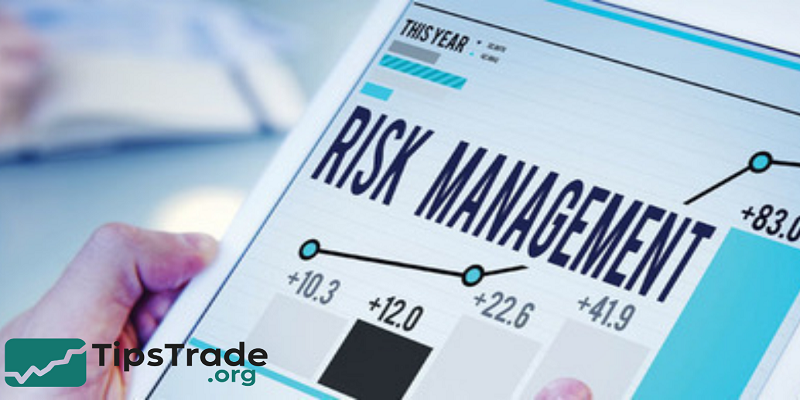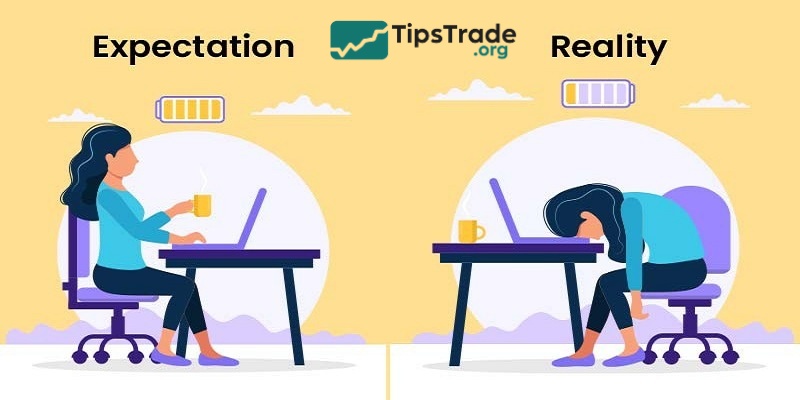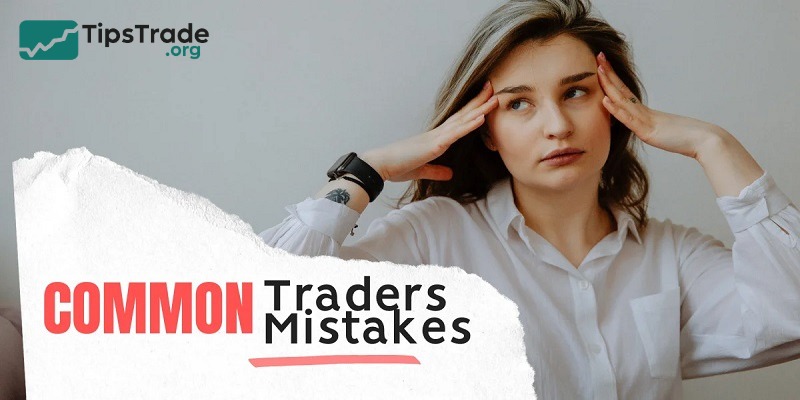Do you know what the most common Prop Firm mistakes that traders often make which lead to their failure in trading, are? Understanding this core factor and learning from these mistakes will make your investment journey much more likely to succeed. Discover right away below!
Common Prop Firm Mistakes Traders Make
Trading in a Prop Firm offers many opportunities, but the failure rate is very high. Many traders are eliminated right from the first round or fail to maintain sustainable profits. Below are common Prop Firm mistakes that lead to failure when trading at a Prop Firm:
Lack of Professional Preparation
One of the common Prop Firm mistakes traders often make when trading prop is the misconception that trading in a prop firm only requires basic knowledge and a few trading strategies. In reality, trading at a prop firm demands quick thinking, strict risk management, and adherence to rigorous processes.

>>See more:
- What Is Prop Firm? Everything From A – Z Trader Need To Know
- Prop Firm Benefits – Why More Traders Join Funded Programs
- Unpacking How Prop Firm Works For Professional Traders
- Prop Firm Evaluation Tips – How to Pass and Maximize Your Funding Chances
Giving Up on Learning and Practice
Many traders lack patience and desire to get rich quickly. However, trading is a continuous learning process. Those who are not willing to spend time or do not have a structured training environment will find it very difficult to survive.

Overconfidence or Lack of Confidence
Overconfidence makes traders complacent, taking on risks that are too large. Conversely, a lack of confidence leads to missing out on many good opportunities. Maintaining a stable mindset is a key factor in trading.
Lack of Risk Management Strategy
Prop Firms often set strict risk limits. Many traders lose their accounts after just a few trades due to poor capital management. Risk management is not only about limiting losses but also helps maintain a stable mindset and organize trades effectively.

Unrealistic Expectations
Many traders enter Prop Firms with the desire to make quick money, but in reality, achieving stable profits takes a lot of time and effort. Those who are not mentally prepared are likely to give up midway.

Choosing the Wrong Prop Firm
Not all Prop Firms are sincere and transparent. Many companies impose overly stringent requirements, high fees, or unfavorable conditions for traders. It is crucial to thoroughly research a Prop Firm before signing up; mistakes in choosing the wrong Prop Firm will directly impact your investment.
What Is the Failure Rate in Prop Trading?
There is no exact figure for the failure rate in prop firms, but most estimates suggest that this number is quite high. Some sources claim that up to 95% of traders fail, while others cite figures of 80% or 90%. Even in large financial institutions, this rate hovers around 55%.
However, these statistics include individuals who are not truly suited for trading – those attracted by the prospect of quick wealth without the necessary passion or skills. They are often eliminated by the market early on.

Prop firms with strict selection processes typically filter out 95% of candidates right from the first round. Among those accepted for training, there is still a significant percentage that cannot persist. For example, some classes may only have 5 out of 6 or 3 out of 9 traders continuing to trade after a while.
Despite the high failure rate, it is important to note that a professional prop firm will provide the best opportunities for traders to develop. Success is not just about making short-term profits but also about continuously improving and adapting to the market.
Lessons from Failed Traders in Prop Trading
Success in a Prop Firm not only depends on trading skills but also requires thorough preparation, the right mindset, and a clear strategy. Below are the core factors that will help you build a solid trading career.
Building a solid foundation
To survive and thrive in a Prop Firm, you need to invest in:
- Structured learning: Participate in in-depth training courses on the market, technical analysis, and risk management.
- Strategic practice: Spend time trading on a demo account or a small account to hone your skills.
- Psychological control: Cultivate patience, and do not let emotions influence trading decisions.
Maintain discipline and adaptability
Trading is not a job with fixed hours, but a continuous process of learning and optimization:
- Maintain discipline: Adhere to the trading plan, set clear goals, and do not act on emotions.
- Be flexible with the market: Be ready to adjust strategies when trading conditions change.
- Control risk: Always set stop-loss orders and do not let a losing trade significantly impact your account.
Persevere through challenging phases
Success in trading does not come immediately. On average, traders need 6-8 months to achieve stable profits:
- Focus on the process, not just the results: Evaluate performance monthly rather than on individual trades.
- Learn from mistakes in prop firms: Keep a record of trading history to gain insights and improve.
- Maintain a positive mindset: Do not get discouraged after losses, as they are part of the trading process.
Choose the right Prop Firm
Not all Prop Firms are the same; choosing the right company can significantly impact your success:
- Clear policies: Understand the rules, trading conditions, and risk limits.
- Reasonable profit-sharing: Ensure your efforts are rewarded fairly.
- Support from the company: Prioritize firms that provide tools, advisors, and a professional trading environment.

Conclusion
In summary, the failures of traders stem from many Prop Firm mistakes. Once you decide to participate in prop trading, consider it a serious investment and cultivate the mindset and discipline to effectively adhere to the proposed trading strategies. Wishing you success in your upcoming journey!
See more:

